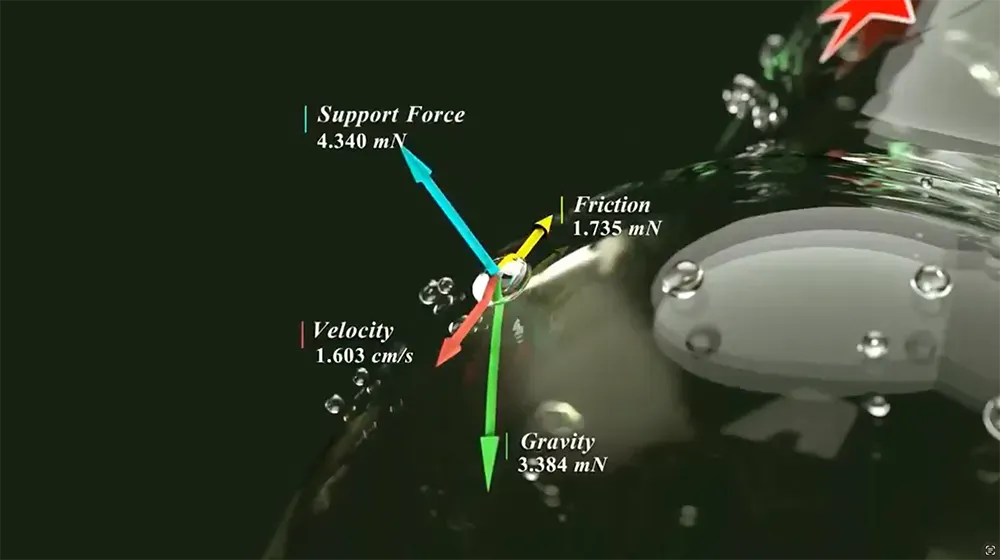Genesis: a Breakthrough in Digital Physics

Imagine a world where the boundaries of digital and physical dissolve, and ultra-realistic environments mimic the complexity of reality down to the finest detail. Genesis, a groundbreaking physics engine and simulation platform, makes this vision tangible. Developed over two years by 20 research labs, Genesis is more than a tool; it’s the backbone of future immersive worlds, robotics, and generative AI.
Genesis can run physics simulations up to 430,000 times faster than real-time on an RTX 4090 GPU and is built entirely in Python—a feat that outpaces conventional GPU solutions like Isaac Gym by 10–80x. Whether training robotic locomotion in just 26 seconds or simulating hyper-detailed interactions between objects and environments, Genesis sets a new benchmark for speed, accessibility, and innovation.
Its unified physics framework incorporates a range of components, including Rigid Body, MPM, SPH, FEM, PBD, and Stable Fluid simulations. This diversity means it can model everything from the graceful motion of a humanoid robot to the chaotic dynamics of fluid flows. Its support for multiple backends, including Linux, macOS, and Windows, ensures broad accessibility, whether you're working with NVIDIA GPUs, AMD architectures, or even Apple Metal.
But Genesis doesn’t stop at physical simulation. Its generative capabilities push the limits of what’s possible. A simple text prompt can generate photorealistic environments, robotic manipulation policies, character animations, or entire 3D scenes. With built-in ray tracing, these outputs are not just functional but stunningly lifelike. This is not just an evolution, Genesis is a paradigm shift.
Why Genesis Changes the Game
Genesis isn’t just another simulation tool; it’s a leap forward for industries ranging from robotics to entertainment. Robotics researchers can train policies transferable to real-world applications at unprecedented speeds. For example, a robot arm can learn to reorganize books on a table or perform synchronized drone flips in record time. Meanwhile, the generative framework enables the creation of 4D dynamic worlds with physically consistent videos, motion trajectories, and even speech animation—all from natural language inputs.
This fusion of physics, generative AI, and ultra-fast computation isn’t just for niche applications. Picture the metaverse—a space that demands immersive, believable environments where users can interact naturally. Genesis is the keystone for such environments, enabling AI-driven characters, real-time simulations, and spatially accurate interactions. These developments elevate the metaverse from a novel idea to a transformative ecosystem for work, play, and creativity. By providing the tools to accurately simulate physical laws, generate lifelike avatars, and design complex scenes on demand, it creates the infrastructure needed for a truly immersive digital future.
Imagine this: architects designing a city can use Genesis to simulate every interaction between buildings, traffic, and weather patterns. Filmmakers can render scenes with realistic lighting and physics without needing physical sets. Gamers can explore virtual worlds that mimic reality so closely that the line between digital and physical is blurred.
Beyond the metaverse, Genesis has profound implications for robotics. Its simulation speeds enable faster prototyping and testing of robotic systems, reducing development cycles from months to days. For industries like healthcare, where precision and reliability are paramount, Genesis could accelerate the development of surgical robots or assistive devices tailored to individual patients.
Implications for Innovation
Genesis represents the confluence of several exponential technologies. It brings AI, robotics, and immersive environments into harmony, fostering innovation across disciplines. Here are three transformative aspects of Genesis:
- Generative Capabilities: The ability to create physics-accurate environments and robotic policies directly from text inputs democratizes access to advanced simulation tools.
- Unprecedented Speed: Training a robot in under 30 seconds or running simulations 430,000 times faster than real-time revolutionizes experimentation and deployment cycles.
- Open-Source Accessibility: By making its core platform freely available, Genesis invites collaboration and creativity from researchers, developers, and industries worldwide.
The question now is: how will we harness this potential? Genesis is not just a technology; it’s a toolkit for creating the future, and I cannot wait to see how developers and organizations will leverage this new open-source tool in 2025! Genesis offers us the tools. It’s up to us to build the world we want to see.
Read the full documentation on the Genesis Github.
----
💡 We're entering a world where intelligence is synthetic, reality is augmented, and the rules are being rewritten in front of our eyes.
Staying up-to-date in a fast-changing world is vital. That is why I have launched Futurwise; a personalized AI platform that transforms information chaos into strategic clarity. With one click, users can bookmark and summarize any article, report, or video in seconds, tailored to their tone, interests, and language. Visit Futurwise.com to get started for free!






